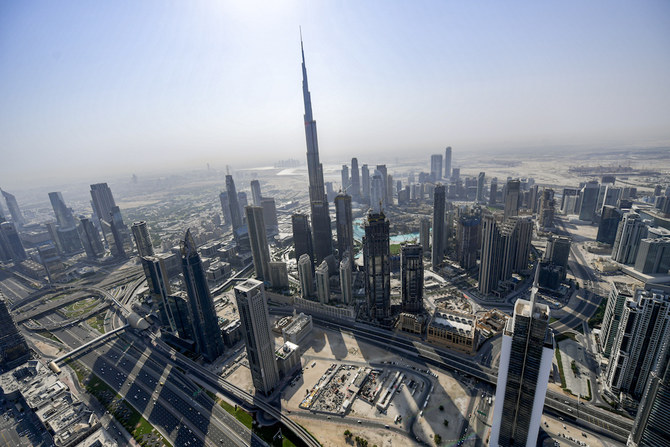DUBAI: Few global cities will look back fondly on 2020, the year of COVID-19 lockdowns and travel bans. Many found themselves facing budgetary shortfalls and compelled to shut their gates to visitors. For most, the recovery is likely to be slow and painful, if warnings by experts are any guide. But Dubai, a city founded on trade, aviation and hospitality in a region reliant on hydrocarbon revenues, may be making a comeback sooner than predicted.
How the UAE’s commercial capital keeps defying critics is a complex story involving many different factors. But when all is said and done, Dubai appears once again to be back on its feet even as many of the world’s great metropolises struggle with the debilitating effects of repeated lockdowns. The “City of Life” has not only survived the worst year in recent memory but looks all set to thrive in the new year, when it also hosts the World Expo from Oct. 1.
Since Dubai reopened to international travelers on July 7, it has witnessed a steady uptick in visitors, who have given the city’s numerous hotels and beachfront resorts a timely cash-flow boost. Restaurants, bars and even nightclubs have reopened. Hotels that weathered the downturn have hiked room rates as bookings soar during what has always been the city’s busiest tourist season.

Peace dividend has done its bit. The UAE’s normalization of relations with Israel, announced in a joint statement in August, could not have happened at a more opportune time. Hebrew, the everyday language of Israel, can now be heard at hotels and restaurants throughout Dubai. A recent report in The Times of Israel said more than 50,000 Israelis have already visited the UAE since the Abraham Accords peace agreement was signed on Sept. 15.
There are now a number of daily direct flights between Tel Aviv and Dubai, and both countries have declared each other “green zones,” meaning quarantine is not required on arrival or return. Nearly 200 hotels and restaurants in the UAE now serve kosher meals.
A report issued by STR, a hotel management analytics firm, in December said the key hotel markets in the UAE had reached or surpassed 50 percent occupancy due to strong domestic and recent international demand, with Dubai at 65 percent occupancy for the week of Nov. 30 to Dec. 6.
“The UAE is probably one of the nimblest countries in the world with the ability to move at such an incredible pace,” Philip Wooller, STR’s area director for the Middle East and Africa, told Arab News.
“Decisions are made in hours that in many countries might take months, or more likely, years. With all emerging economies, there will be ups and downs, but if we focus on the hospitality sector, Dubai’s pace of growth has been nothing short of sensational.”
Wooller wrapped up the emirate’s progress thus: “Just a few short years ago, Dubai had only a handful of hotels and a handful of visitors. Pandemic aside, the same Dubai is now the world’s fourth-most visited city with one of the largest hotel markets and a growing list of world-class venues.”
To be sure, social-distancing rules are still in force, mask-wearing is required even on beaches, and there are restrictions on gatherings of more than five people except for members of the same family. The precautionary measures are likely to remain in place for as long as the authorities in Dubai consider them necessary.
INNUMBERS
Dubai
* 200,000 - Travelers visiting emirate for Christmas, New Year holidays.
* 30% - Rise in share prices of Damac Properties Dubai Co. in December.
* 2021 - City to host World Expo from Oct. 1.
Also, if a recovery is indeed underway, it’s still early days. Even before the pandemic hit, Dubai was experiencing a general slowdown in economic activity. The pace of expatriate departures had quickened as many shops, businesses and companies struggled to stay afloat in a city that had grown accustomed to continuous growth almost since the discovery of oil.
Reports of even longtime residents returning to their home countries augured badly for the future of an economic model built on the presence of expats, who comprise about 90 percent of Dubai’s population.
With the onset of the pandemic came an oil price plunge, as collapsing energy demand worldwide resulted in crude prices hitting two-decade lows. Finance ministers of the Gulf countries sounded the alarm and central bank chiefs went for broke in anticipation of another global recession. The international media was filled with reports of blue-collar South Asian and Filipino workers leaving on repatriation flights.
For Dubai, the existing economic problems were exacerbated by the impact of the coronavirus crisis on the global travel and tourism industry, which came to a shuddering halt. A strict 24-hour lockdown implemented in April forced businesses with already bruised balance sheets to close or lay off staff.
Foreign migrant workers bore the brunt of the cost-cutting measures, with many seeing their salaries slashed, delayed or frozen. Oxford Economics estimated that as many as 900,000 jobs could be lost in the UAE and 10 percent of its residents uprooted.
Anxiety bubbled away just beneath the surface in Dubai, a cosmopolitan city known for its entrepreneurial energy, boundless ambition and unlimited shopping opportunities. And after March, two of the emirate’s biggest strengths — the aviation and hospitality sectors — proved to be its greatest weaknesses amid a pandemic blamed on a highly transmissible and deadly virus.
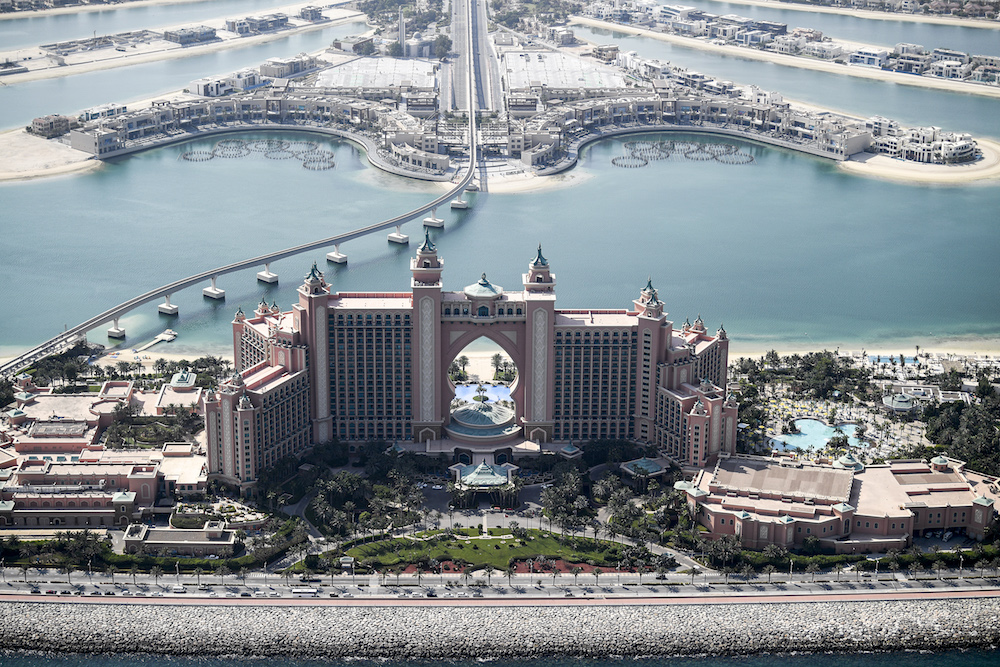
This picture taken on July 8, 2020 shows an aerial view of the Atlantis The Palm, luxury hotel resort located at the apex of the man-made Palm Jumeirah archipelago off the Gulf emirate of Dubai. (AFP/File Photo)
Now, with the launch of the UAE’s COVID-19 vaccination campaign, those grim days could soon be regarded as a forgettable page in Dubai’s history. Hotels are busy adjusting their business strategies to cope with the new influx of visitors. The Jumeirah Group, which manages the world-famous Burj Al-Arab hotel, has established a series of pop-up experiences, including SAL — a chic new pool and beach club that is regarded as a cutting-edge concept.
“Dubai’s nature is to be entrepreneurial and radically adaptive to changing environments, and these characteristics have allowed it to navigate the crisis and come out stronger,” Danielle Wilson Naqvi, owner of boutique travel agency Unique Family Travels, told Arab News.
It is not just the big companies who are betting on a brighter future. Anecdotal evidence of green shoots of recovery can be found in the upbeat mood of many small business owners who experienced stress and uncertainty during the lockdowns.
“Despite a challenging few months before the summer, footfall to Cassette has been the strongest we have ever had,” said Haider Madani, owner and co-founder of Cassette DXB, a cafe-restaurant that opened in February 2019.
“Thanks to our higher number of customers, we have been able to increase the size of the team, helping a lot of great talent in the market looking for work, as well as expand our food and drink offering.”
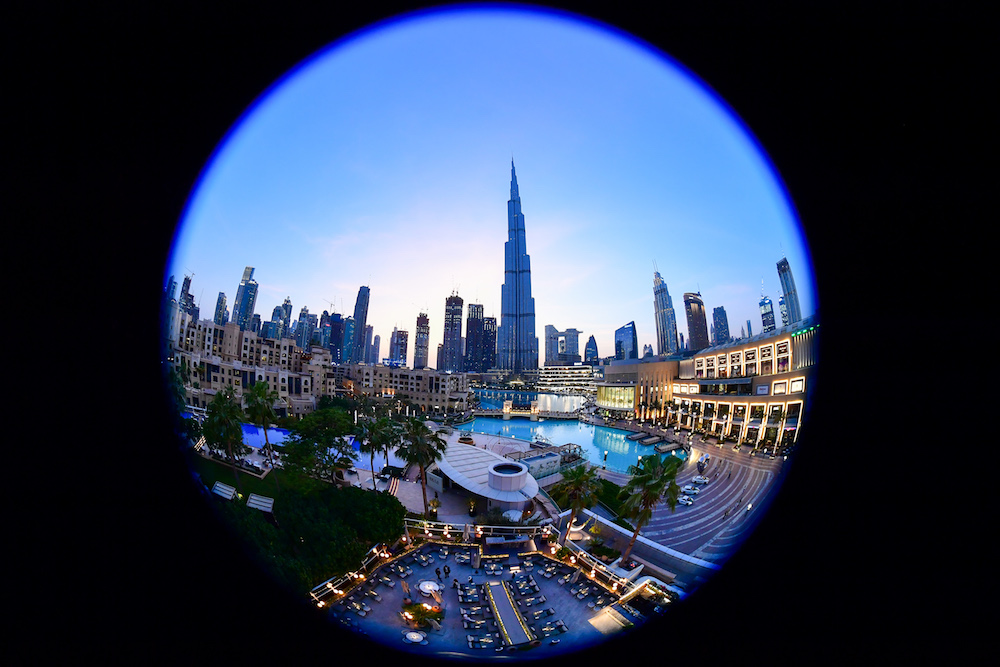
A picture taken with a fish-eye lens on July 19, 2020 shows Dubai's Burj Khalifa, the tallest structure and building in the world ahead of the launch of the UAE “Hope” Mars probe. (AFP/File Photo)
While only time will tell how deep the recovery is, if it is real then Dubai has pulled it off just when the outlook could not have been bleaker. “Pre-pandemic Dubai faced economic challenges — its real estate and hotel sector were perhaps oversupplied,” said Wooller. “In some ways, the pandemic has allowed Dubai to take stock of the situation and provided an opportunity to change direction where needed.
“I think it is too early to talk about a second boom, but Dubai feels pretty good at the moment. The handling of the pandemic has also been a credit to Dubai, and I fully expect the city to go from strength to strength in 2021.”
In the last two months, the UAE government has adopted a raft of measures aimed at boosting the economy and attracting skilled talent from around the world. These include a groundbreaking amendment to the UAE Companies Law that permits 100 percent foreign ownership within the onshore jurisdiction of the UAE, which previously required 51 percent Emirati ownership in businesses operating outside the free zones.
In November, a major overhaul of the country’s personal laws allowed unmarried couples to cohabitate and loosened alcohol restrictions. For its part, Dubai launched in October a remote working program that makes it possible for digital nomads and their families to relocate to the emirate on an annual basis for just $287 plus medical insurance costs.
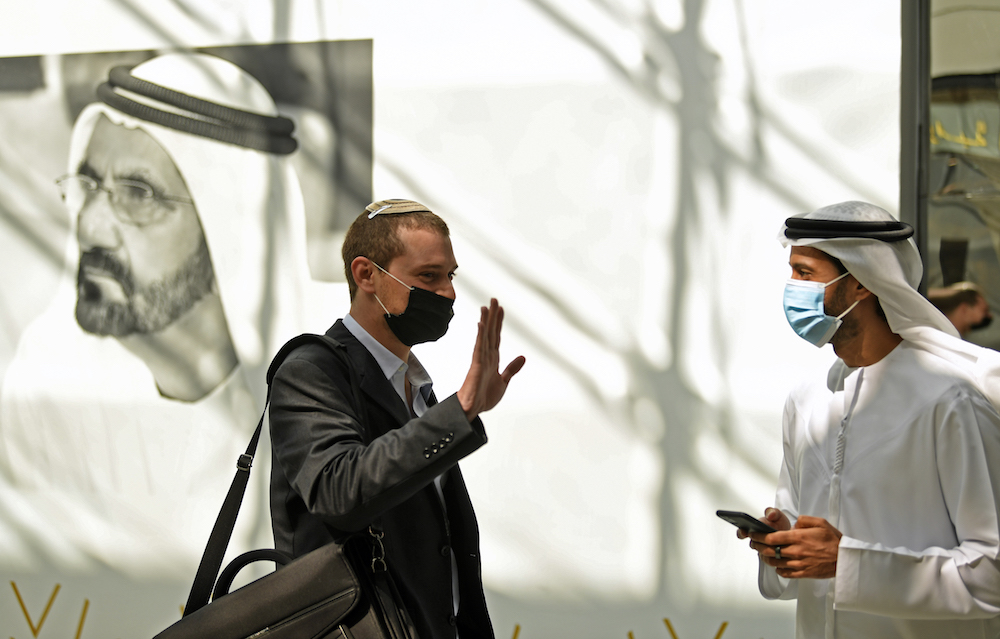
A recent report in The Times of Israel said more than 50,000 Israelis have already visited the UAE since the Abraham Accords peace agreement was signed on Sept. 15. (AFP/File Photo)
The amended legislation followed the approval in October by Dubai of an extra $136 million (AED 500 million) economic stimulus package to support the local economy, which brought the year’s total stimulus measures to $1.8 billion.
Property dealers are hoping that small fluctuations in the Dubai real-estate market are the harbinger of an eagerly awaited recovery. According to the UBS Global Real Estate Bubble Index, every major city experienced price rises except Dubai in 2020, whose market went into decline during the pandemic due to a lack of liquidity and is therefore “fair valued” from an investment standpoint.
“This was on top of an already undervalued real estate market,” Taufiq Rahim, a UAE-based senior fellow at the New America Research Institute, told Arab News. “Dubai’s assets were already at a low and it had to adjust to a low base. Now you have an increase in visitors, in people looking for property and for residency.”
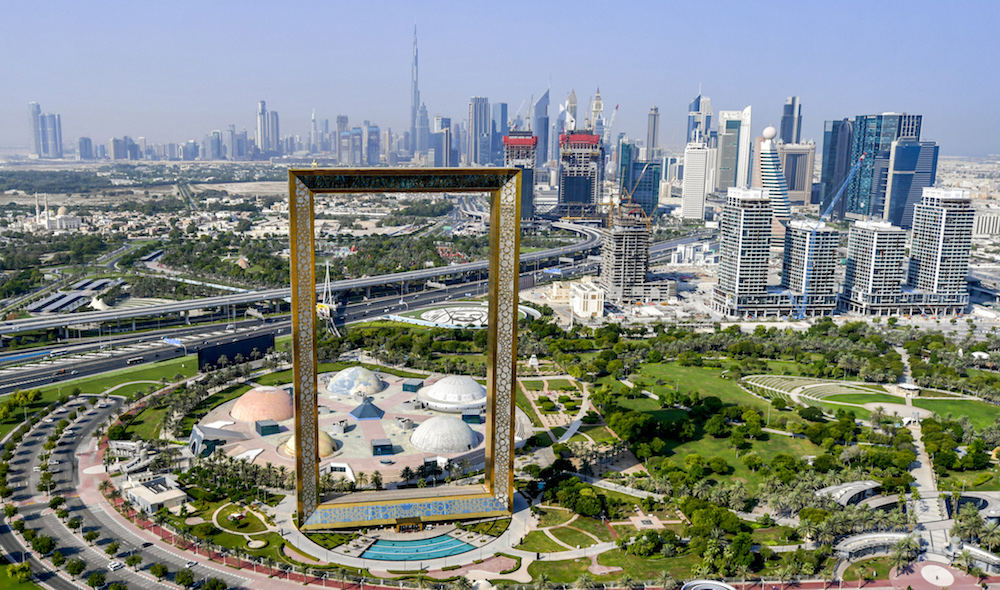
This picture taken on July 8, 2020 shows an aerial view of the Dubai Frame landmark in the Gulf emirate of Dubai. (AFP/File Photo)
At the end of November, the Dubai Land Department (DLD), in cooperation with Property Finder, launched the seventh edition of Mo’asher, the emirate’s official sales price index. It showed that demand for villas and townhouses was at an all-time high, with growth of over 500 percent since May 2020.
More good news arrived last week in the form of the first batch of Pfizer-BioNTech-manufactured COVID-19 vaccines flown into the UAE by Emirates SkyCargo for Dubai Health Authority. Praising the “effective management of the pandemic by Dubai’s visionary leadership,” Nabil Sultan, a senior executive of the carrier, said: “By transporting COVID-19 vaccines across our extensive network, we look forward to helping people around the world get back on their feet after the devastating impact of the pandemic.”
The emirate’s current mood is one of cautious optimism and confidence. “You need to be very brave to take on Dubai,” Wooller, of the hotel-management analytics firm STR, told Arab News. “It is a city that is extremely quick on its feet.”
-------------------
Twitter: @rebeccaaproctor


